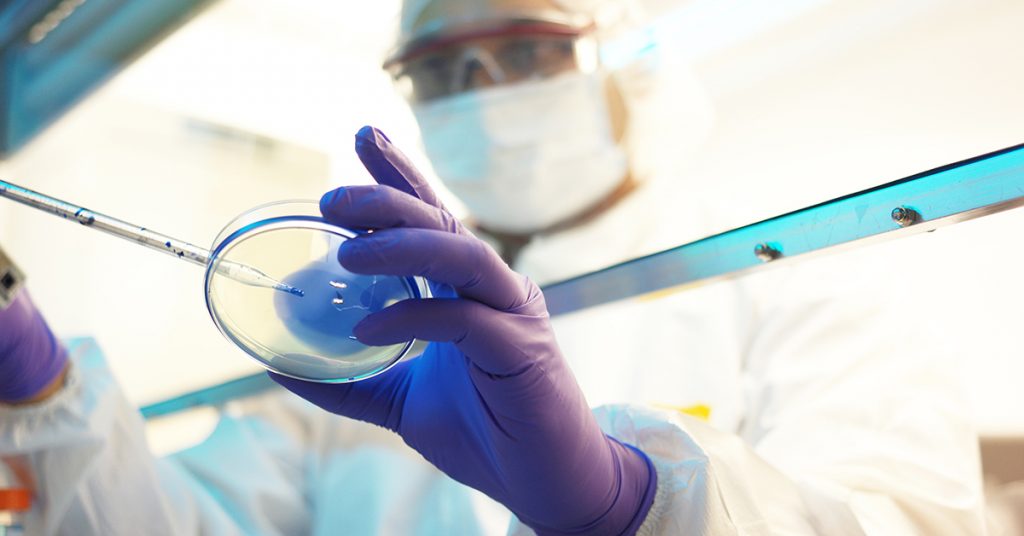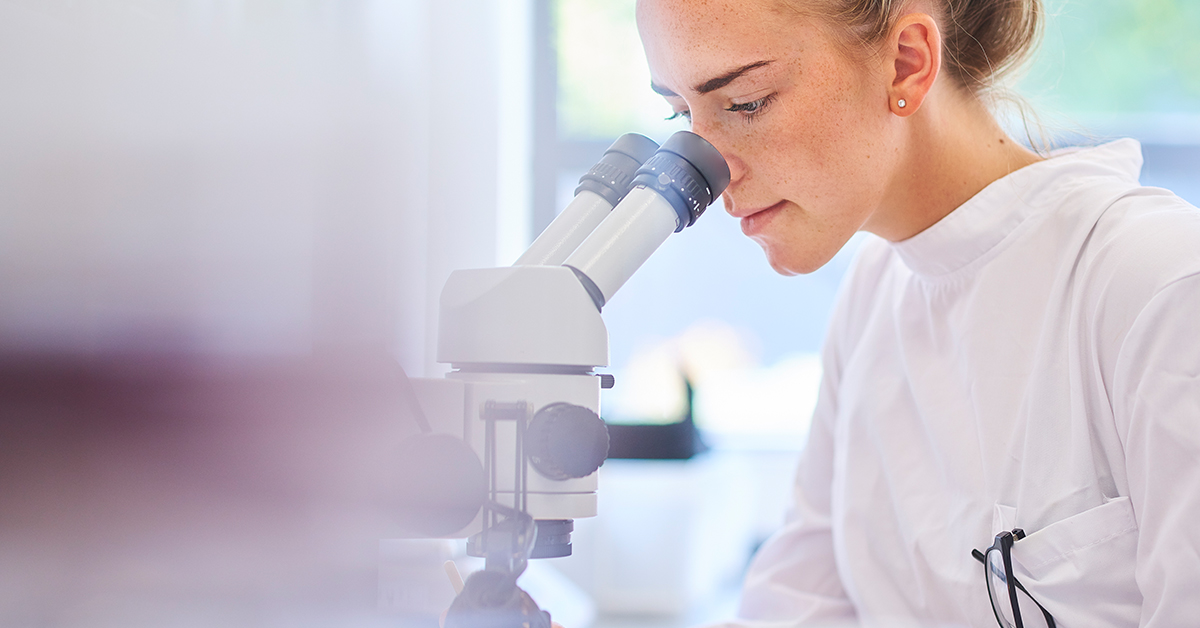Laboratory testing is a key part of the medical field, but one that takes place largely behind the scenes, as anyone interested in becoming a medical laboratory scientist knows. Indeed, between blood tests, swabs, urine sample collection, and other miscellaneous exams, over 10 billion tests are performed in the United States every year by 300,000 medical laboratory professionals. And with an aging (and growing) population, the number of tests needed is only due to increase in the next several years.
An aging population and rising rates of chronic illness are just two reasons that we need more people to undertake the important work of medical laboratory science. Our online MS program, targeted for current lab techs, can help you advance within the field with confidence and expertise – because what we do in the lab is a matter of life or death.
Safety And Standardization
Medical laboratory scientists are responsible for a wide variety of tests and need to be proficient in the use of numerous complex tools such as microscopes and cell counters, among others. Some of these tests keep patients safe from unnecessary harms while hospitalized, such as blood typing for transfusions, while others are used for diagnostic purposes, like cell counts that determine whether a patient has anemia or leukemia. In any case, accuracy is of the utmost importance.
Students of medical laboratory science must also understand the mechanisms and purpose of the many tests that doctors regularly order. As full-fledged lab heads, medical laboratory scientists are responsible for writing procedure standardizations, monitoring testing outcomes, and performing lab-wide quality assurance programs. Beyond the level of the lab tech, testing standardization and accuracy become your responsibility; patient safety rests on your shoulders.
Additionally, we shouldn’t underestimate the role medical laboratory scientists play in maintaining lab-wide safety standards. Such work can be life or death in terms of disease spread if it’s not done properly. Contamination is a serious risk and one we shouldn’t overlook within the field.
Money Matters
Financial factors also play a role in the importance of medical testing. That’s because when health problems are diagnosed early, they typically cost less to treat. Whether that’s managing diabetes, a lifelong condition, or curing an infection, early diagnosis is key. It’s also typically the point at which diagnosis is most difficult since symptoms are minimal.
Consider, for example, microbiology tests in which bacteria growth is measured. The earliest phases of an infection like MRSA might just look like a skin rash to the untrained eye, but a prompt swab and careful analysis will reveal it to be a potentially deadly infection. If caught early, doctors can typically just drain the area or use antibiotics, but overlooked MRSA can cause sepsis, resulting in organ failure or amputation. This is a clear case in which early diagnosis is both financially and physically beneficial, but this is true even for mild ailments and we learn more about this all the time.
Early diagnosis of cancer is also a serious concern from both health and monetary perspectives. Though some forms of cancer, such as prostate cancer, are slow growing, others require earlier prevention and treatment. Lab scientists, for example, are typically responsible for genetic testing, such as that responsible for detecting BRCA1 and 2, genes that result in a significant increased risk of breast and ovarian cancers. Appropriate testing can allow individuals to take preventative measures, avoiding chemotherapy and radiation in the future.
With medical expenditures through the roof in the United States and insurance coverage constantly at risk, decreasing the cost of proper care is in everyone’s best interests. That means we need to take prevention and diagnosis seriously and attack the process with our best tools – and those include properly trained, outstanding medical lab scientists.

When Science Goes Awry
Laboratory testing is most likely to go wrong when the person at the helm doesn’t fully understand the field, which is why we need more highly trained individuals leading our testing centers. Consider the recent Theranos scandal – a clear example of what happens when those outside the field try to revolutionize it.
Like so many prior incidences in which college dropouts try to revolutionize an industry, Elizabeth Holmes was convinced that her startup could transform blood testing by performing standard tests with minimal amounts of blood. Holmes quickly found funding for her atypical approach, but the fallout was enormous.
After extensive media scrutiny, others in the field determined that Theranos’ tests were inaccurate, a fact with potentially life-threatening results for those who had used them. We rely on these tests to determine serious health issues, but Holmes’ system put patients at risk.
More remarkable than the fact that Holmes thought she could transform the medical laboratory testing field without much knowledge is the fact that it took so long to uncover these errors. Almost anyone with proper training in laboratory techniques understands that there’s a reason we draw blood or take other samples in the volumes that we do; the accuracy of the tests depends on it. Whether it’s a cholesterol test or diagnostic sputum cytology, you need a sufficient sample. Without a large enough sample, testing fails.
Advancing The Field
Medical laboratory science is a rapidly growing field with plenty of room for advancement, but those committed to the work need to have great attention to detail, the ability to prioritize, and a keen sense of both biology and the mechanics behind laboratory tools. And while the demands are many, the rewards are great – not to mention the employment opportunities are plentiful.
The online program at The University of Southern Mississippi can help you launch a career as a medical laboratory scientist. As an affordable, high quality educational program, we’re focused on your success and enroll students from around the country.
If you’re currently working as a certified medical lab technician, contact us today to learn more about our MS in Medical Laboratory Science. The University of Southern Mississippi is your next step towards a great career.







Share on Social Media: